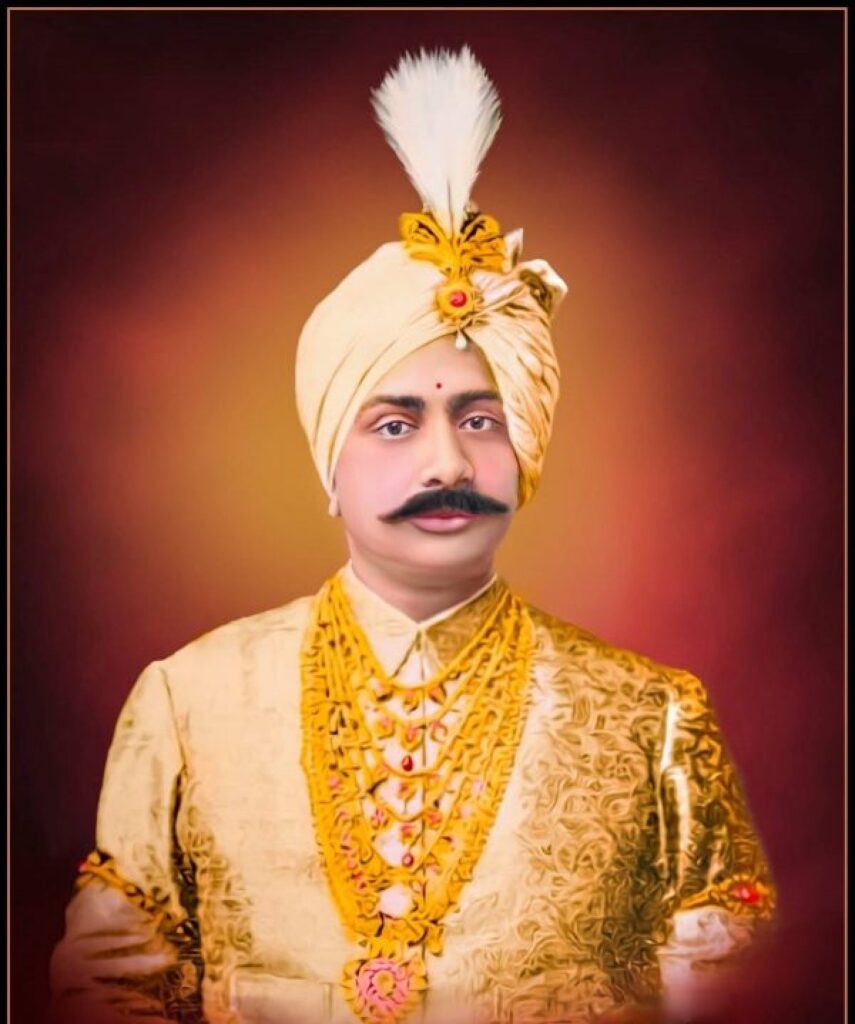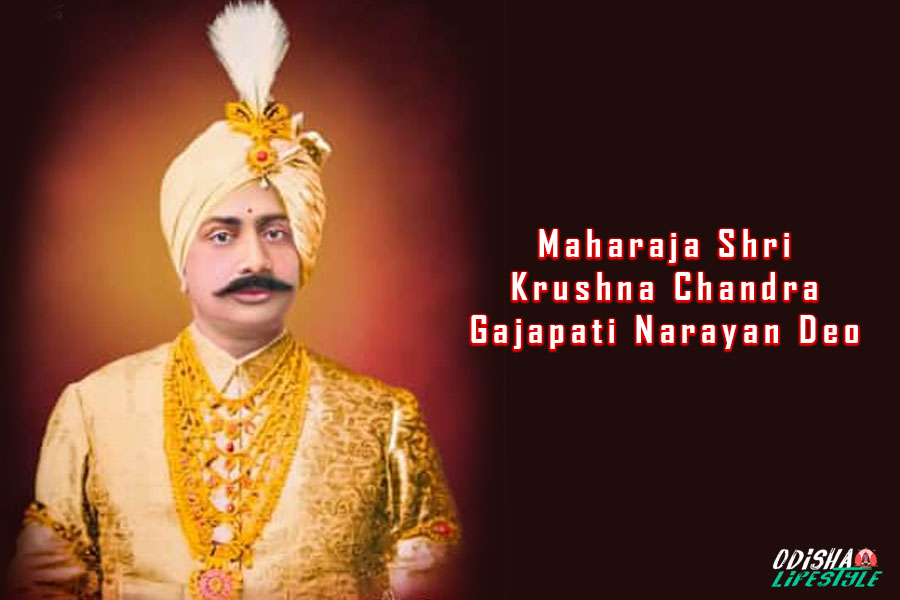Late Maharaja Shri Krushna Chandra Gajapati Narayan Deo of Paralakhemundi, the son of Late Goura Chandra Gajapati Narayan Deo was born on 26th April 1892, educated in Madras assumed rulership in 1913, an enlightened and benevolent ruler; a patron of education and culture organised the annual session of the Utkal Union Conference at Paralakhemundi in 1914.
In 1916, he was nominated by the Government to hold the post of Honorary Commissioner of the Land-Force of the Defence of India, laid a light railway through his Estate connecting Naupada with Paralakhemundi; set up a big library in his palace for research scholars.
Maharaja Shri Krushna Chandra Gajapati

You can read our another post on The Leaning Temple of Huma: A Unique Architectural Wonder
an important member of the justice party of Madras, member of the Royal Agricultural Commission in 1927, Maharaja Shri Krushna Chandra Gajapati member of the Madras Legislative Council, represented the case of Odisha at the Round Table Conference, London 1930-31, deposed before the joint parliamentary committee for the union of Paralakhemundi with Odisha in 1934, Placed the printed Memorandum before the authorities and strongly advocated for inclusion of the Oriya Portions of Paralakhemundi in Odisha and Odisha for a separate province; formed the non-Congress Ministry in Odisha in 1937, the Government conferred on him the title of Maharaja in 1936 in recognition of his honour and merit.
In 1941 November the Maharaja was invited to form the Ministry and assumed the Chief Ministership. Member of the Constituent Assembly of India 1947-50, life member of the Royal Society of Maharaja Shri Krushna Chandra Gajapati Arts and Royal Asiatic Society, London; Life member of Utkal University, Utkal University conferred on him the degree of LL. D. This worthy illustrious son of Odisha passed on 25th May 1974.
Maharaja Shri Krushna Chandra Gajapati Narayan Deo, a prominent figure in Indian history, was born on 26 December 1892 in Paralakhemundi, Odisha. He was an exceptional leader, a visionary, and a champion of social reform. Let’s delve into the inspiring journey of this revered personality.
Hailing from the Gajapati dynasty, Maharaja Krushna Chandra Gajapati Narayan Deo ascended the throne of Paralakhemundi at a young age. He dedicated his life to the welfare of his subjects and the development of his region, transforming it into a model state.
Maharaja Krushna Chandra Gajapati Narayan Deo played a pivotal role in the fight for India’s independence. He ardently supported the freedom movement, actively participating in various national initiatives and working closely with prominent leaders like Mahatma Gandhi and Pandit Jawaharlal Nehru. His relentless efforts and unwavering commitment to the cause earned him deep admiration and respect.
More: Wanted to download Odishashop.com visit here
Aside from his political activities, Maharaja Krushna Chandra Gajapati Narayan Deo was a principled advocate of social reforms and fought against social injustices prevailing in society. He initiated significant reforms in education, healthcare, and women’s rights. His contributions in the fields of education and healthcare laid a strong foundation for the development and progress of the region.
A true patron of art, culture, and literature, Maharaja Krushna Chandra Gajapati Narayan Deo supported various art forms and promoted Odia literature. His profound love for Odisha’s rich heritage and cultural traditions was reflected in his efforts to preserve and promote them. He was known for his patronage of talented artists, musicians, and scholars, leaving an indelible mark on the cultural landscape of the state.
Despite his royal stature, Maharaja Krushna Chandra Gajapati Narayan Deo was known for his simplicity, humility, and his deep connection with the people. He earned the love and adoration of his subjects through his selfless service and compassionate nature. His reign was marked by inclusive governance and a strong focus on the well-being of all sections of society.
Maharaja Shri Krushna Chandra Gajapati Narayan Deo’s legacy continues to inspire generations, serving as a shining example of leadership, social reform, and cultural preservation. His remarkable contributions towards the freedom struggle, education, healthcare, and art have left an indelible mark on the history of Odisha and India as a whole.

